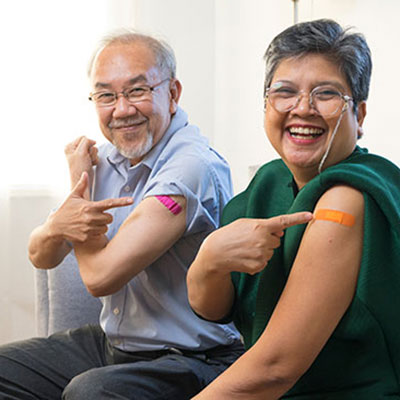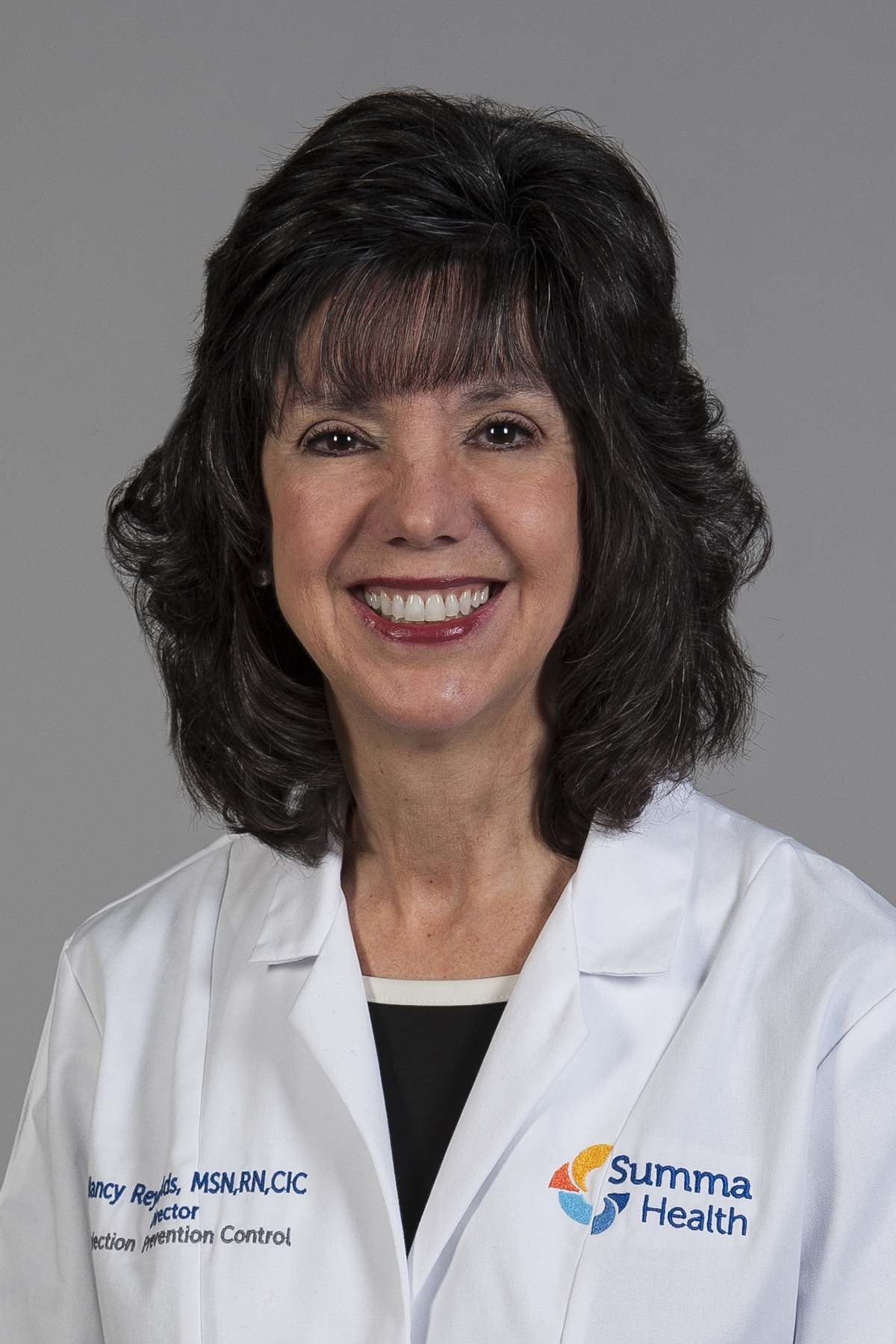Vaccines: What You Need to Know
Posted October 30, 2023 by Shanu Agarwal, M.D., Nancy Reynolds, MSN, RN, CIC, FAPIC

Reviewed August 2025
As we enter the fall and winter virus season, we want you to know how you can best protect yourself and others from getting sick. There are a lot of questions about vaccines that we want to answer for you here.
The three viruses that cause the most hospitalizations this time of year are:
- Influenza (flu)
- SARS-CoV-2 (COVID-19)
- Respiratory Syncytial Virus (RSV)
All three viruses can potentially cause severe infections in adults, especially for those with underlying conditions such as heart or lung disease, diabetes, or other chronic or immune-compromising conditions. The best protection is vaccination.
How do Vaccines Work?
Vaccines teach your body’s immune system to fight specific viruses and bacteria. They contain or induce small pieces of the virus or bacteria, but not enough to make you sick. (Please Note: the mRNA vaccines insert genetic code to build the viral protein to which your immune system responds by producing antibodies.)
When you get a vaccine, your immune system learns to recognize and attack these viruses. If you are ever exposed to the virus or bacteria, your immune system will be ready to fight it off and prevent you from getting sick or lessen any illness from infection.
Vaccine Availability
The flu and COVID-19 vaccines are universally available for adults, while the RSV is licensed for adults older than 60.* The Centers for Disease Control and Prevention (CDC) recommends persons discuss the decision to receive it with their healthcare providers.
*In addition, the U.S. Food and Drug Administration (FDA) has approved Pfizer’s RSV vaccine in pregnant individuals to help protect infants as old as six months old, marking a new way to protect babies—a group at higher risk for complications from this virus.
Vaccine Information – Flu and COVID-19
Both flu and COVID-19 change their genetic structure over time, so it is essential to be up to date on the latest version of the viruses. Notably, the newer vaccines for these viruses should not be considered ‘boosters’ since they target new versions of the viruses for which prior vaccines are no longer effective.
Updated 2025-2026 flu vaccines will all be trivalent and will protect against an H1N1, H3N2 and a B/Victoria lineage virus. The composition of this season’s vaccine compared to last has been updated with a new influenza A(H3N2) virus.
The updated mRNA COVID-19 vaccines (2025-2026 formula) include a monovalent (single) component that corresponds to the Omicron variant KP.2 strain of SARS-CoV-2.
The updated mRNA COVID-19 vaccines also include Comirnaty and Spikevax, both of which are approved for individuals 12 years of age and older. The Moderna COVID-19 vaccine and Pfizer-BioNTech COVID-19 vaccine, are for individuals 6 months through 11 years of age.
For more information on these specific vaccines, visit the FDA’s page on COVID-19, Flu and RSV.
Vaccine Information – RSV
The CDC recommends the RSV vaccine for everyone 75 years of age and older and for those 60-74 years old with chronic heart, lung or other medical conditions. The RSV vaccine is not an annual vaccine, meaning you do not need to get it every year. The best time to receive the RSV vaccine is in late summer or early fall.
Some younger people may be recommended to get the RSV vaccine, as babies and pregnant individuals may have a severe case of RSV if they contract it. The CDC recommend either a maternal RSV vaccine or infant immunization with monoclonal antibodies. For those who are pregnant, the only recommended RSV vaccine is Pfizer’s Abrysvo, which should be administered September through January during weeks 32 through 36 of pregnancy.
Babies younger than eight months entering their first RSV season can get one dose of Sanofi and AstraZeneca PLC’s Beyfortus, a monoclonal antibody to prevent RSV in newborns and infants. For more information, please visit the CDC’s page on the RSV vaccine.
Vaccine Co-administration
Per the CDC, co-administration with all three vaccines at the same visit is acceptable. However, there is currently limited data on the effectiveness of the co-administration of RSV and other vaccines. A reasonable strategy for those eligible for all three vaccines is to consider co-administration of the flu and COVID-19 vaccines together if you can and receive the RSV vaccine separately, perhaps waiting a couple of weeks afterward to ensure any reactions have gone away.
The goal is to be as healthy as possible, and while these vaccines may not prevent mild infection, they prevent severe illness and complications such as hospitalization or death. Furthermore, the COVID-19 vaccine has been observed to reduce the chance of ‘Long COVID.’
Vaccines are a safe and effective way to protect yourself, your loved ones and our community from serious illness.
Learn more about Summa Health’s infectious disease care by visiting summahealth.org/infectious-disease.
Vitality eNews Sign Up
Receive the Summa Health eNewsletter for the latest health tips, advice and updates.


